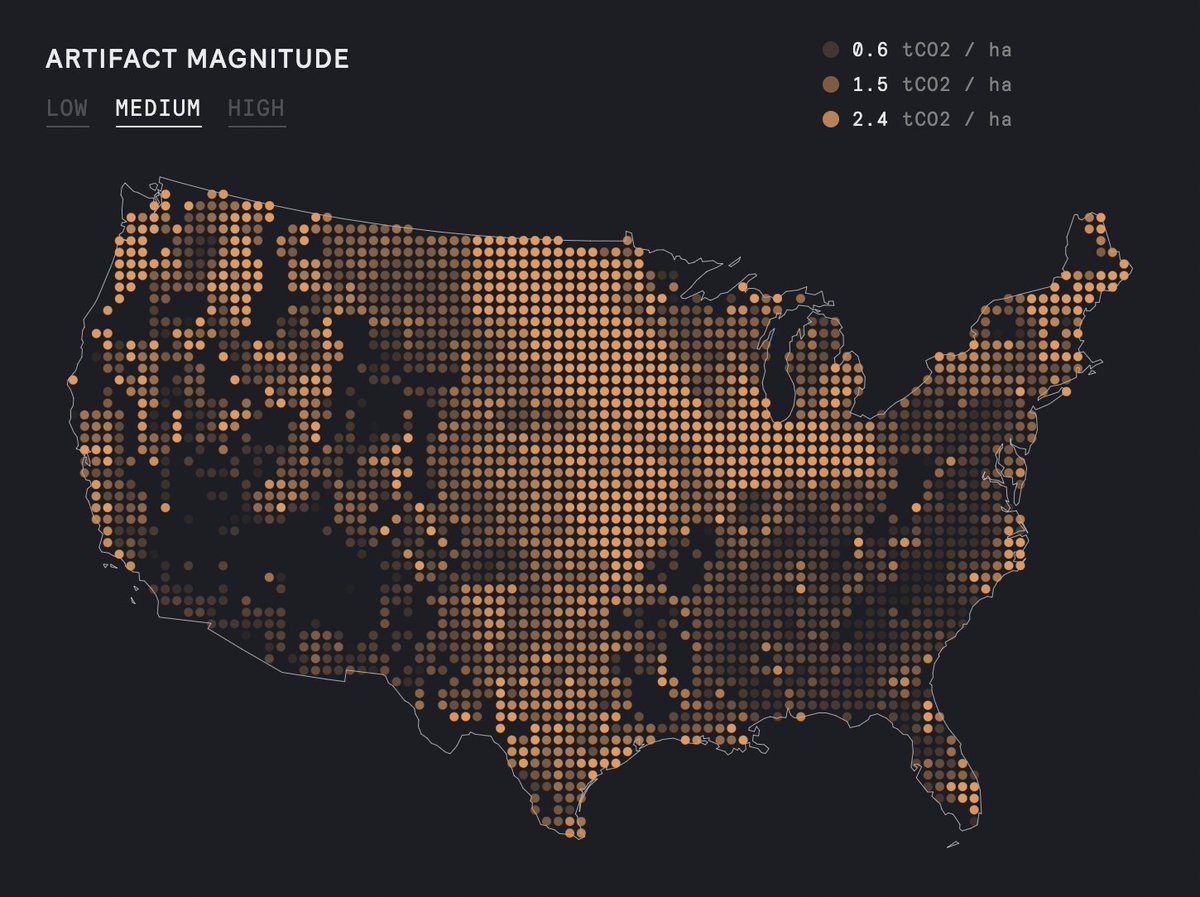
New article announcement! Our collaborator @ESlessarev led an analysis with us on the role of depth in soil sampling, and why it matters for soil carbon crediting. (1/9)
carbonplan.org/research/soil-…
carbonplan.org/research/soil-…
Soil carbon sequestration has been getting a lot of attention as a climate mitigation strategy, but actually measuring soil carbon is super complicated. For any of these efforts to succeed, we need rigorous and robust measurement. (2/9)
Our article discusses two issues that can be major pitfalls when measuring soil carbon: carbon redistribution and density changes. We use conversion from tillage to no-till as our example. (3/9)
Carbon redistribution means that conversion to no-till can increase carbon in the top layer of soil while decreasing it at greater depths. Carbon accounting must look at the complete depth profile, otherwise we might get the wrong answer. (4/9)
We also looked at how changes in soil density in the top layer, which occur after conversion to no-till, can appear as changes to soil carbon unless careful estimation methods are used. Luckily, this potential measurement artifact can be corrected! (5/9) 

We used a simple calculation to illustrate the potential consequences of ignoring these issues. At the scale of the entire US, measurement artifacts could over-credit 367 million tCO₂, equivalent to 58% of the total annual emissions from the US agricultural sector in 2019. (6/9) 

It’s important to remember that even if the carbon benefits from agricultural practices are uncertain or overestimated, they can still be broadly beneficial for maintaining soil health and ecosystem services. (7/9)
But as federal lawmakers, state regulators, and voluntary carbon markets all explore crediting soil carbon, we need to be extremely careful to get the measurement right — otherwise we risk making big mistakes. (8/9)
Thanks to @ESlessarev for leading this analysis; to coauthors @j_zelikova @HammanHydro @dcullenward @thefreemanlab; to @Jeffinerca and Dan Liptzin for helpful discussions; and to @PWVentures for funding. (9/9)
• • •
Missing some Tweet in this thread? You can try to
force a refresh




